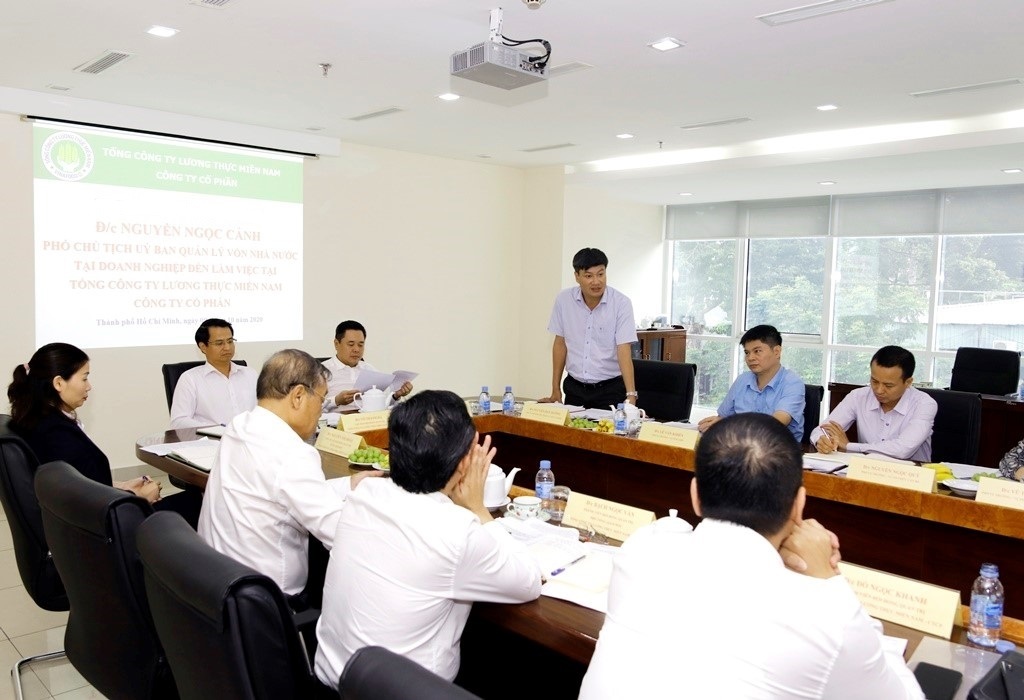Seeking more resources, corporate governance
At the latest working session with Vinafood 2, Nguyen Ngoc Canh, deputy chair of the State Capital Management Committee (SCMC), asked the enterprise to continue to improve the efficiency of production and business, and effectively use state capital in the corporation and step up restructuring.

Canh also asked VInafood 2 to work with commercial banks on credit limits, build detailed plans on borrowing capital and paying debts based on enterprise’s conditions, and organize the 2020 general meeting to approve the 2020 business plan.
The working session took place when Vinafood 2 was still facing financial problems and incurring a loss of trillions of dong.
The corporation has been operating as a joint stock company since October 9, 2018 after equitization, but the state still holds 51.4 percent of its charter capital.
Vinafood 2, like many other equitized enterprises, has been called an ineffective enterprise.
The government’s latest report to the National Assembly showed that a number of enterprises have operated ineffectively after equitization. They have been taking losses and cannot preserve stockholder equity.
Coma, for example, has negative stockholder equity of VND48 billion, as well as Vinaincon (VND666 billion), Quang Nam Food and Service JSC (VND99 billion) and Da Nang Import-Export JSC (VND40 billion).
Some joint ventures also have negative stockholder equity, including Vietnam Satellite Digital Television Co Ltd (VND2.962 trillion) and Hai Thanh – Hai Phong (VND153 billion).
One chief cause of losses is having no change in their administration models.
Heightening investors’ role
Dinh Tuan Minh, a respected economist, said speeding up the equitization of state owned enterprises and improving operation efficiency is one of the most important solutions to the economy in 2021 in the context of Covid-19.
“I think it is necessary to give power to equitized enterprises, so that private investors have more rights in governance. Though the state holds the controlling stake, governance can be changed, so that joint stock companies are managed by private investors,” Minh said, stressing that this is essential to creating the dynamism of future growth.
Minh cited Singapore’s state-owned Temasek investment fund as an example. Though the state holds a large share proportion in enterprises, the right to manage enterprises is still in the hands of private investors.
He believes that Vietnam can adjust the business administrative model this way, i.e. increasing power for private investors.
Meanwhile, Can Van Luc, chief economist of BIDV, proposes applying OECD standards in corporate governance to enterprises, stressing that this will be an important driving force to improve the operation of equitized enterprises.
Duy Anh

Post-equitization period: high hopes put on strategic investors
The equitization of state-owned enterprises must place more importance on the management experience of strategic investors.

SOE equitization: state takes loss, and investors lose money
Many state-owned enterprises (SOEs) have been equitized but have not seen considerable changes as the state's ownership ratio remains high. Many of them are still taking losses and struggling to survive.